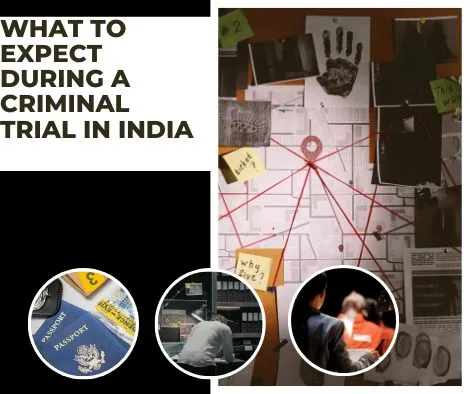Divorce. The very word evokes a storm of emotions: anger, sadness, confusion, and uncertainty. In this article we have explain Common Mistakes to Avoid in the Divorce Process. While navigating this tumultuous period, it’s easy to make choices that can have lasting consequences. But fear not, for by avoiding these common pitfalls, you can steer through the divorce process with greater clarity and peace of mind.
Common Mistakes to Avoid in the Divorce Process
Here are Common Mistakes to Avoid in the Divorce Process explained:-
Emotional Wreckage: When Feeling Takes the Wheel
Mistake #1: Letting Anger Dictate Your Decisions**
It’s natural to feel anger towards your ex-partner. However, allowing this anger to drive your actions can lead to regrettable decisions, potentially affecting custody agreements, asset division, and even future relationships. Remember, revenge does not heal wounds; it merely creates new ones.
Mistake #2: Drowning in the Guilt Swamp**
Guilt can be a heavy anchor during divorce. But self-flagellation won’t rewrite the past. Acknowledge your contributions to the breakdown, learn from them, and focus on building a better future. Dwelling on guilt only hinders your journey forward.
Financial Faux Pas: Protecting Your Future Stability
Mistake #3: Going Solo in the Money Maze**
Navigating the financial complexities of divorce alone is like venturing into a labyrinth blindfolded. Seeking guidance from a financial advisor and experienced divorce lawyer can help you understand your rights, assess your assets and debts, and secure a fair financial settlement that protects your future stability.
Mistake #4: Overlooking Hidden Treasures (and Debts)**
Don’t underestimate the power of forgotten bank accounts, retirement plans, or even vacation timeshares. Create a comprehensive inventory of all assets and liabilities, including joint accounts and debts, to ensure a transparent and equitable settlement.
You can also read :- How to apply for Divorce
Communication Catastrophe: Building Bridges, Not Walls
Mistake #5: Turning Social Media into a Battleground**
Venting about your divorce on social media might feel cathartic in the moment, but it can be used against you in court. Keep your private matters private, and remember, the internet never forgets.
Mistake #6: Shutting Down the Lines of Communication**
While maintaining emotional distance might be tempting, shutting down communication entirely can hinder the divorce process. Open and respectful communication, even amidst disagreement, can pave the way for a more amicable and efficient resolution.
Conclusion: Towards a Brighter Horizon
Divorce is a challenging journey, but by avoiding these common mistakes, you can navigate it with greater clarity, emotional stability, and financial security. Remember, this is not the end of your story, but the beginning of a new chapter. Embrace the lessons learned, focus on healing, and step into your future with confidence.
FAQ (FREQUENTLY ASKED QUESTIONS)
1. Q: What is the most common mistake people make in the divorce process?
A: Failing to communicate effectively with their spouse and rushing decisions without proper discussion.
- Q: Can I handle my divorce without legal representation?
A: While it’s possible, it’s not advisable as legal expertise can prevent common pitfalls and ensure a fair outcome. - Q: Is it necessary to disclose all financial information during divorce proceedings?
A: Yes, full financial transparency is crucial to reaching a fair settlement and avoiding legal complications. - Q: Can I hide assets during a divorce?
A: Attempting to hide assets is illegal and can lead to severe consequences, including financial penalties. - Q: Is it important to understand the laws in my state before filing for divorce?
A: Yes, divorce laws vary by state, and understanding them is crucial for a smooth process. - Q: Can social media posts impact my divorce case?
A: Yes, what you share online can be used as evidence, so it’s essential to be cautious about your online presence. - Q: Can I use my child as leverage in the divorce process?
A: Using children as leverage is highly discouraged and can harm both the child and your case. - Q: Should I skip mediation and go straight to court?
A: Mediation is often recommended as it can save time, money, and reduce conflict compared to going to court. - Q: Can I change the locks on our marital home during the divorce process?
A: Changing locks without legal permission may lead to complications; it’s crucial to consult with your attorney first. - Q: Is it wise to involve friends and family in my divorce decisions?
A: While seeking support is natural, involving too many people can complicate matters; consult with professionals instead. - Q: Can I refuse to pay child support if my ex-spouse denies visitation rights?
A: Child support and visitation are separate issues; failing to pay child support is illegal and can have serious consequences. - Q: Should I sign documents without fully understanding them?
A: No, it’s essential to comprehend all legal documents before signing to avoid unintended consequences. - Q: Can I relocate with my children without the other parent’s consent?
A: Generally, relocation requires the other parent’s approval or court permission; unauthorized moves can lead to legal complications. - Q: Can I stop my spouse from obtaining spousal support?
A: Spousal support eligibility is determined by various factors; trying to prevent it without legal grounds can backfire. - Q: Is it necessary to update my will and estate plan during divorce proceedings?
A: Yes, updating your estate plan is crucial to reflect changes in beneficiaries and avoid legal disputes. - Q: Can I neglect my mental health during the divorce process?
A: Ignoring mental health can impact decision-making; seeking counseling or therapy is advisable during challenging times. - Q: Should I use my attorney as a therapist?
A: Attorneys are not mental health professionals; it’s essential to seek emotional support from friends, family, or a therapist. - Q: Is it wise to make impulsive financial decisions during divorce?
A: Impulsive financial decisions can have long-term consequences; consulting with a financial advisor is recommended. - Q: Can I skip court-mandated parenting classes?
A: Skipping parenting classes may lead to legal consequences and impact child custody decisions. - Q: Should I rely solely on online divorce forms without legal advice?
A: Online forms can be helpful but may not cover all aspects of your case; consulting with an attorney is recommended. - Q: Can I ignore court orders during the divorce process?
A: Ignoring court orders can result in contempt charges; it’s crucial to comply with all legal directives. - Q: Can I refuse to let my ex-spouse see our children if they don’t pay child support?
A: Child custody and support are separate issues; denying visitation based on financial matters can lead to legal repercussions. - Q: Is it necessary to close joint accounts immediately after filing for divorce?
A: Closing joint accounts without proper planning can cause financial issues; consult with a financial advisor before taking action. - Q: Can I use my child’s preferences to manipulate custody decisions?
A: Manipulating a child’s preferences is unethical and may not be legally admissible; decisions are based on the child’s best interests. - Q: Should I neglect updating my insurance policies during divorce proceedings?
A: Neglecting insurance updates can lead to complications; review and update policies to ensure proper coverage. - Q: Can I skip the property appraisal process to save money?
A: Skipping property appraisal may result in an unfair distribution of assets; it’s important for an accurate financial assessment. - Q: Can I start a new relationship during the divorce process?
A: While it’s a personal choice, new relationships can impact negotiations and child custody decisions; proceed with caution. - Q: Is it advisable to withhold information about my income during divorce proceedings?
A: Full disclosure of income is required; withholding information can lead to legal consequences and an unfair settlement. - Q: Can I represent myself in court without any legal background?
A: Representing yourself, known as pro se, is possible, but it’s challenging and may result in unfavorable outcomes; legal representation is recommended. - Q: Is it necessary to consider tax implications during the divorce process?
A: Yes, overlooking tax implications can lead to financial surprises; consult with a tax professional to understand the consequences of your decisions.
Sources:-
















